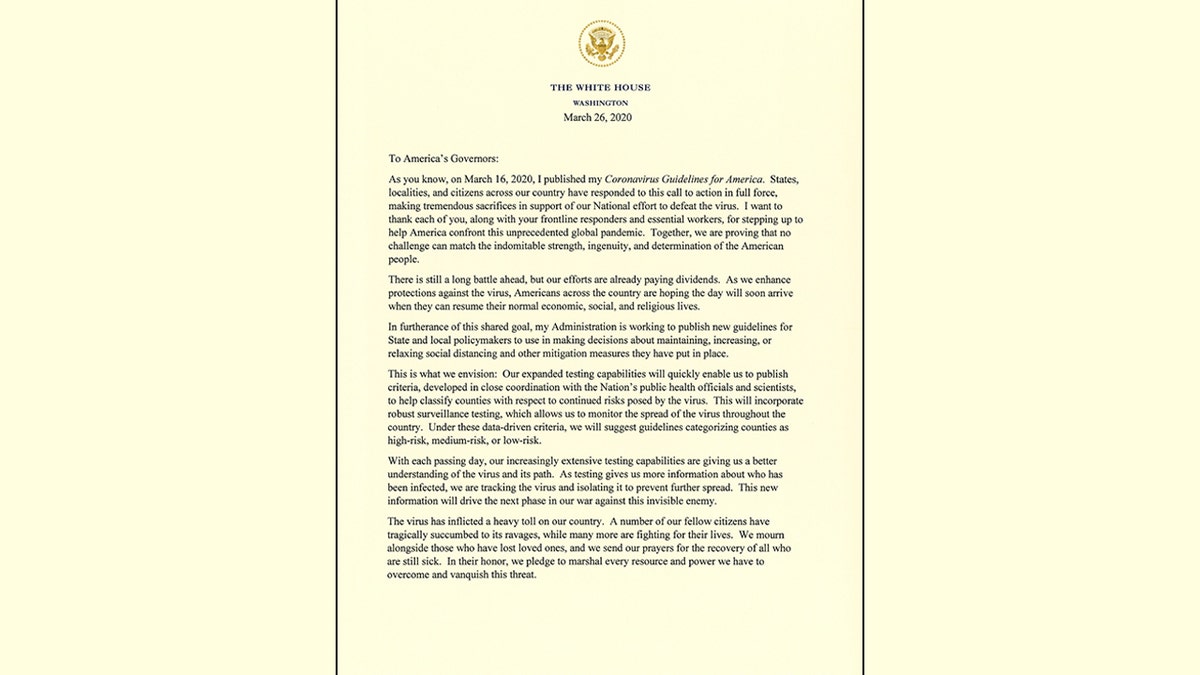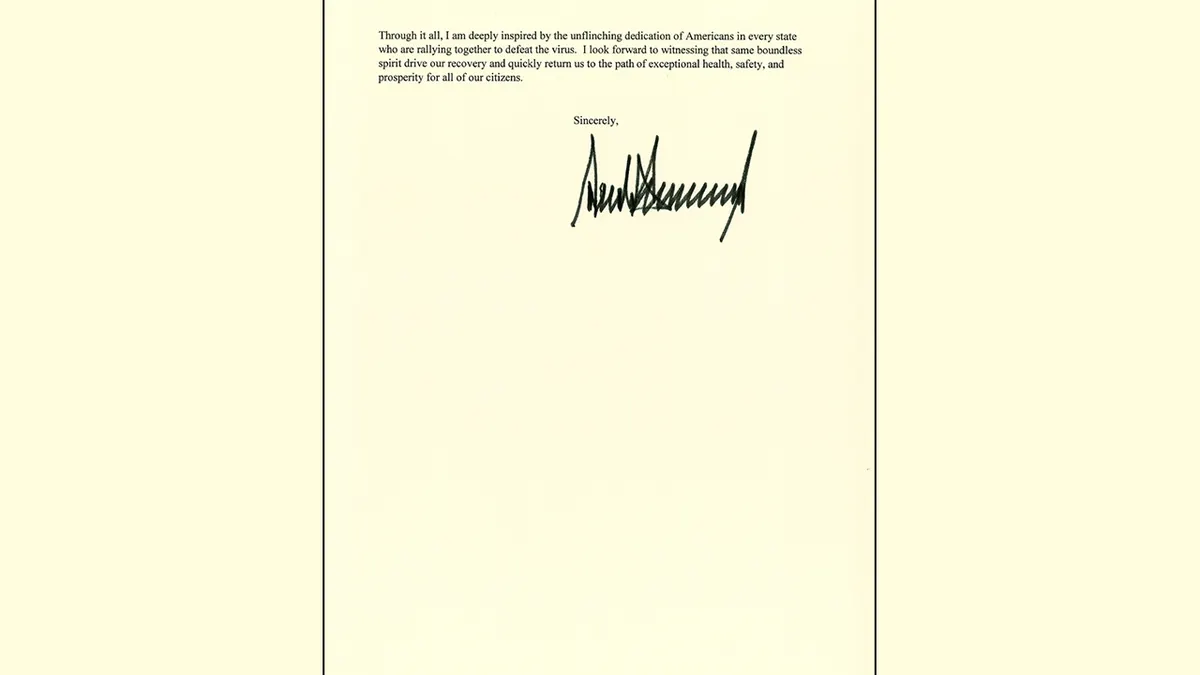Doctor to Trump: Let things play out on COVID-19 before restarting the economy
Baylor College of Medicine's Dr. Peter Hotez says social distancing needs to continue longer to avoid completely overwhelming hospitals.
Get all the latest news on coronavirus and more delivered daily to your inbox. Sign up here.
President Trump on Thursday said the administration is working to publish new guidelines that will advise governors in states across the nation on potential changes to social distancing, based on whether certain counties are low, medium or high risk for the novel coronavirus.
In a letter from the president to “America’s Governors,” Trump thanked state leaders for “stepping up to help America confront this unprecedented global pandemic.”
WHITE HOUSE SAYS RECORD SURGE IN UNEMPLOYMENT CLAIMS 'NO SURPRISE' AMID CORONAVIRUS RESPONSE
“Together we are proving that no challenge can match the indomitable strength, ingenuity, and determination of the American people,” Trump wrote.


“There is still a long battle ahead, but our efforts are already paying dividends,” he continued, noting that “the day will soon arrive” when Americans can resume their “normal economic, social, and religious lives.”
CORONAVIRUS IN THE US: STATE-BY-STATE BREAKDOWN
Trump said the administration is “working to publish new guidelines for State and local policymakers to use in making decisions about maintaining, increasing, or relaxing social distancing and other mitigation measures they have put in place.”
The president said that the White House envisions that the expanded testing capabilities will “enable us to publish criteria, developed in close coordination with the Nation’s public health officials and scientists, to help classify counties with respect to continued risks posed by the virus.”
“This will incorporate robust surveillance testing, which allows us to monitor the spread of the virus throughout the country,” Trump explained. “Under these data-driven criteria, we will suggest guidelines categorizing counties as high-risk, medium-risk, or low-risk.”
He added: “This new information will drive the next phase in our war against the invisible enemy.”
The White House, earlier this month, implemented a policy called “15 days to slow the spread,” which included social distancing, working from home when possible, and avoiding gatherings of more than 10 people in order to curb the spread of COVID-19. Many states have forced non-essential businesses to close during the pandemic.
That 15-day period ends on Monday, March 30. It is unclear, at this point, what new guidelines would be.
“The virus has inflicted a heavy toll on our country. A number of our fellow citizens have tragically succumbed to its ravages, while many more are fighting for their lives," Trump wrote. "We mourn alongside those who have lost loved ones, and we send our prayers for the recovery of all who are still sick."
He added: "In their honor, we pledge to marshal every resource and power we have to overcome and vanquish this threat."
The president’s message to governors comes after he, earlier this week during a Fox News virtual town hall, said he “would love to have the country opened up” by Easter, which falls on April 12.
SENATE PASSES $2T CORONAVIRUS STIMULUS PACKAGE
The president has argued that he doesn’t want “to turn the country off” and see a continued economic downfall from the coronavirus pandemic. He also said he worries that the country will see “suicides by the thousands” if the novel coronavirus devastates the economy.
“We lose thousands and thousands of people a year to the flu. We don’t turn the country off,” Trump said during the town hall. “We lose much more than that to automobile accidents. We don’t call up the automobile companies and say stop making cars.”
He added: “We have to get back to work.”
Coronavirus Task Force member Dr. Anthony Fauci, director of the National Institute of Health, on Wednesday warned that the president's Easter timeline is “aspirational.”
Fauci added: "He's been very flexible about it, even though it looks like he's made this absolute decision on something. He does have an open mind about it."
Different states will likely have starkly different guidelines. While every state in the union has positive cases of the novel coronavirus, some are grappling with a much more devastating impact.
New York has been considered the epicenter of COVID-19 in the U.S., with more than 37,000 cases as of Thursday afternoon.
States with more than 1,000 positive coronavirus cases include New Jersey, California, Washington, Florida, Michigan, Illinois, Louisiana, Pennsylvania, Texas, Georgia, Massachusetts and Colorado.
At this point, New York, California, New Jersey, Connecticut and Illinois have issued executive orders that closed non-essential businesses and urged residents to work from home unless they are an essential worker.
By Thursday afternoon, the U.S. had reported more than 75,200 positive cases of COVID-19 and more than 1,000 deaths.














































